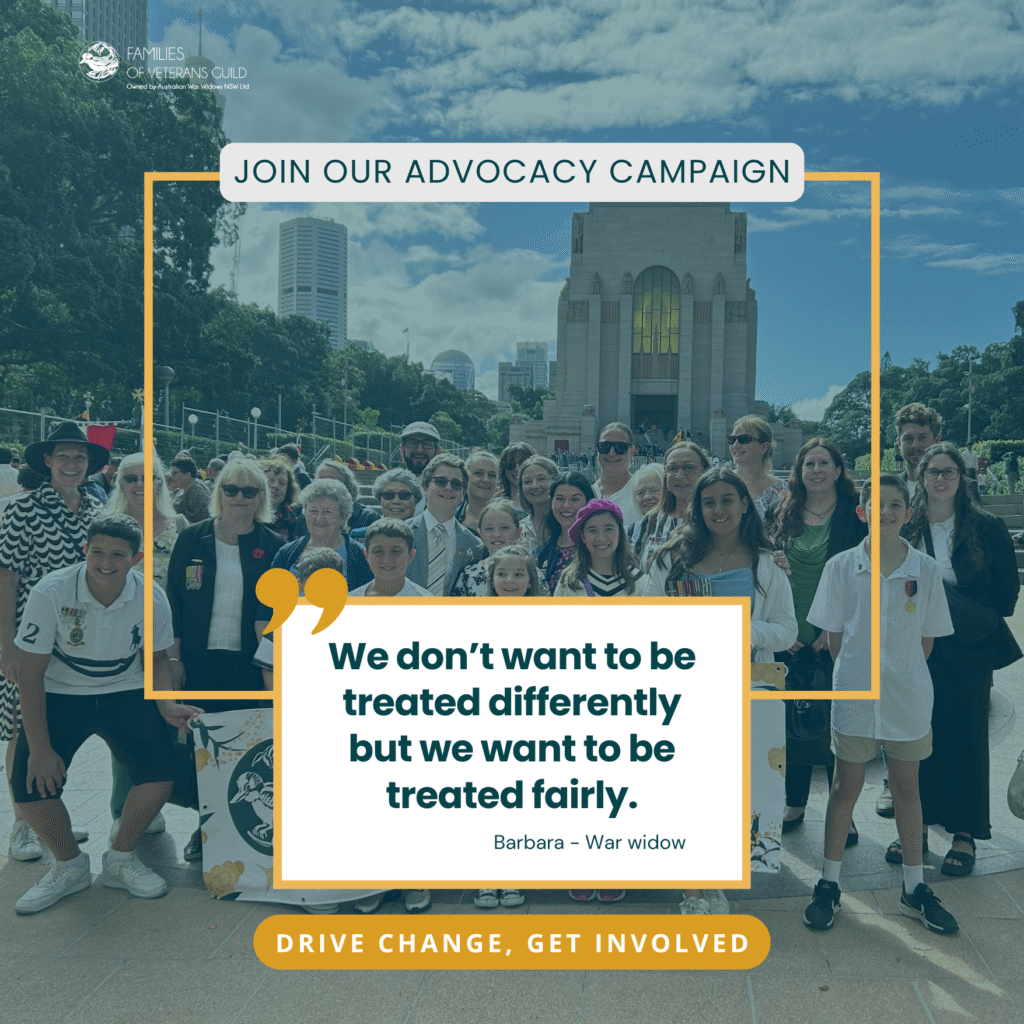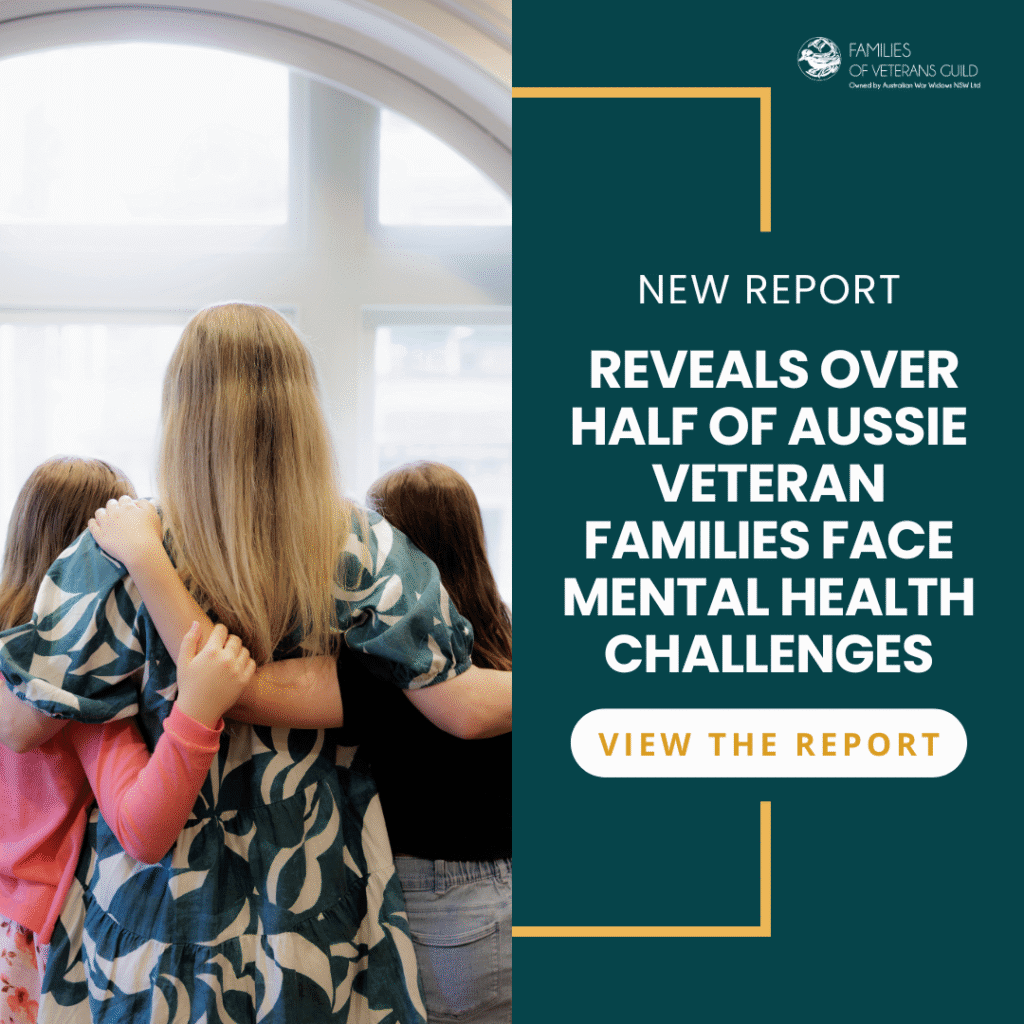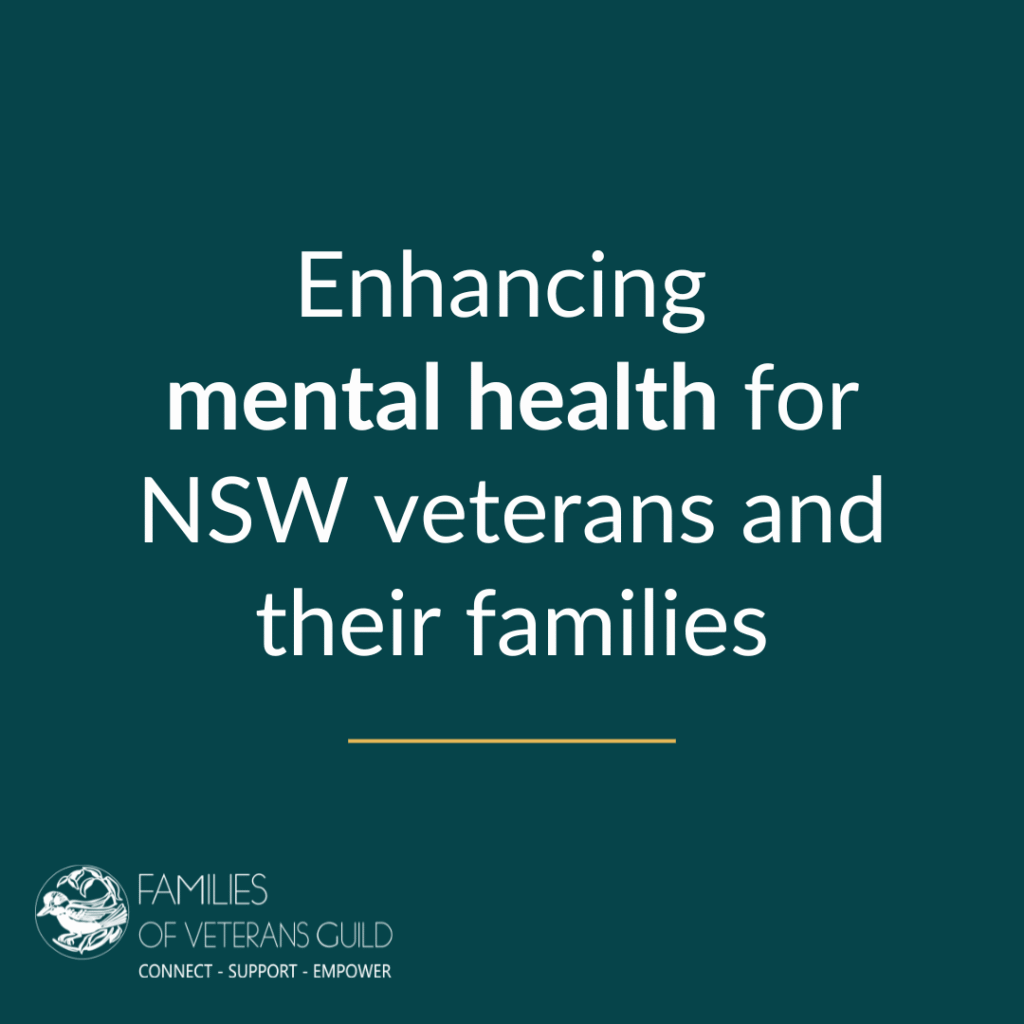This year marks 50 years on from when Australia withdrew from Vietnam. While this war bought lessons and progress to the programs and services on offer to veterans, there has been very limited movement on the support available to their families.
Since 2014, we as a sector have had access to information and data about the impacts of war service on the families of the veterans. the Vietnam Veteran Study Series confirmed what many of you know the mental wellbeing of spouses of war veterans is poorer than the mental wellbeing of the general public.
As a result of this study, we know that as many as 1 in 3 spouses of war veterans are likely diagnosed with depression, and 2 in 5 spouses may experience suicidal ideation.
Yet for the last 11 years that this knowledge has existed, there has been limited progress when it comes to supporting these spouses and families. The availability and access to mental health support for veterans’ families is critical and could be improved significantly. This is why the mental health of veterans’ families is the first priority in our Advocacy Plan.
The mental health needs of the entire group of veterans’ families are vast and therefore need to be considered according to the most urgent need first. The solutions we are seeking is for improved access to mental health treatment and services for:
- Families bereaved by a service-related death.
- Children of veterans who have died as a result of their service or of veterans who have been significantly wounded/injured or ill as a result of their service.
- Families who have experienced trauma related to a veteran; and
- Families caring for wounded/injured and ill veterans.
Improved access for those with a DVA entitlement consists of ongoing treatment card access for mental health conditions. For those without a DVA entitlement improved access consists of an appropriate increase in Medicare rebated sessions on a mental health plan in addition to improved access to appropriate levels of mental health treatment through Open Arms.
In pursuing these priorities, we have first focused on the removal of gold cards from children of deceased veterans. Currently, children of veterans who have passed as a result of their service can have their eligibility for the gold card extended where a mental health condition is impacting their ability to study full-time until the age of 25 years. We are working with DVA to look at how these treatment cards can be extended to cover mental health treatment, using a similar model to the treatment model that was put in place for the children of Vietnam Veterans.
Taking care of the mental health treatment of children in bereaved families removes barriers to treatment and reduces financial pressures on those widowed by Defence service, it can also limit the impacts of intergenerational trauma and improve health and wellbeing outcomes for these children.
Read our full advocacy plan HERE.
Click HERE to read our submission on the veterans legislation reform which also addresses this need.



